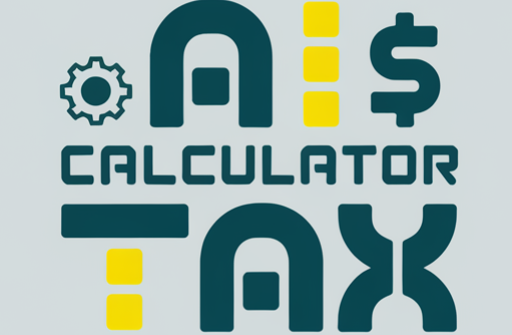In today’s fast-paced business landscape, managing taxes efficiently is critical for compliance, cost savings, and strategic growth. AI-powered tax solutions are revolutionizing how businesses handle everything from payroll to VAT, offering accuracy, speed, and scalability. Below, we break down the top AI applications in business taxation, structured to align with the Koray Framework for problem-solution clarity and semantic SEO depth.
AI Tax Solutions for Small Businesses
Problem: Small businesses often lack the resources to navigate complex tax codes, leading to errors, missed deadlines, and penalties.
Solution: AI tools like QuickBooks Self-Employed and Xero automate tax tracking, deductions, and filings.
- Key Features:
- Real-time income/expense categorization.
- Automated sales tax calculations for multi-state operations.
- Predictive alerts for quarterly deadlines.
Case Study: A boutique bakery reduced tax prep time by 65% using AI to track ingredient costs and automate deductions.
Corporate Tax AI: How It Works
Problem: Corporations face intricate tax regulations across jurisdictions, increasing compliance risks.
Solution: AI platforms like Vertex and Thomson Reuters ONESOURCE use machine learning to:
- Analyze global tax codes and treaties.
- Optimize transfer pricing strategies.
- Generate audit-ready reports.
How It Works:- Data aggregation from ERP and financial systems.
- Real-time tax liability modeling.
- Dynamic compliance checks against regulatory updates.
AI for Managing Business Tax Deductions
Problem: Businesses miss out on thousands in deductions due to manual tracking errors.
Solution: AI tools like Expensify and SAP Concur automate deduction discovery:
- Receipt Scanning: OCR technology digitizes and categorizes expenses.
- Smart Tagging: Flags deductible items (e.g., office supplies, client travel).
- Compliance Alerts: Ensures deductions align with IRS guidelines.
Stat: Companies using AI deduction tools save 22% more annually than manual filers.
AI and Payroll Tax Management
Problem: Payroll tax errors lead to penalties and employee dissatisfaction.
Solution: AI-driven platforms like Gusto and ADP:
- Auto-calculate federal/state withholdings.
- Sync with HR systems for real-time updates.
- Generate W-2s and 1099s with 99.9% accuracy.
Pro Tip: Use AI to track remote employee taxes across states.
AI for Sales Tax Compliance
Problem: Managing sales tax across 11,000+ U.S. jurisdictions is error-prone.
Solution: Tools like Avalara and TaxJar leverage AI to:
- Auto-apply correct rates at checkout.
- File returns in multiple states.
- Detect nexus triggers (e.g., economic thresholds).
Example: An e-commerce brand reduced audit risks by 40% after adopting AI sales tax software.
AI and Value-Added Tax (VAT) Automation Problem: Global businesses struggle with VAT compliance across 160+ countries.
Solution: Platforms like Sovos and Vertex VAT Compliance:
- Auto-calculate VAT rates for cross-border transactions.
- Submit VAT returns via EU’s Making Tax Digital (MTD) protocols.
- Translate invoices into local languages.
Stat: AI reduces VAT errors by 74% in multinational corporations.
AI Tax Software for Large Enterprises
Problem: Enterprises need scalable solutions for multi-entity, multi-country tax management.
Solution: Enterprise-grade AI tools like OneSource and Longview Tax:
- Consolidate data from subsidiaries.
- Model tax implications of mergers/acquisitions.
- Ensure compliance with OECD BEPS guidelines.
Case Study: A Fortune 500 company saved $12M annually by automating transfer pricing with AI.
AI for Tax Compliance in E-commerce
Problem: E-commerce sellers face complex tax rules on platforms like Amazon and Shopify.
Solution: AI tools like Taxify and Quaderno:
- Track marketplace facilitator laws.
- Auto-file GST/VAT for international sales.
- Sync with Shopify, eBay, and WooCommerce.
Pro Tip: Use AI to manage “economic nexus” thresholds in high-volume states.
AI for Handling Business Expense Reports
Problem: Manual expense reporting drains time and increases fraud risks.
Solution: AI platforms like Rydoo and SAP Concur:
- Auto-approve compliant expenses.
- Flag anomalies (e.g., duplicate receipts).
- Integrate with corporate credit cards.
Stat: AI reduces expense fraud by 52% and processing costs by 30%.
AI and Quarterly Tax Filing
Problem: Freelancers and SMBs struggle to estimate quarterly payments accurately.
Solution: Tools like QuickBooks SE and TurboTax Business:
- Predict liabilities using YTD income data.
- Auto-adjust payments for income fluctuations.
- E-file Form 941 and 940 in minutes.
Example: A consultancy avoided $4,500 in penalties with AI-driven quarterly estimates.
Conclusion: The Future of AI in Business Taxation
AI is transforming tax management from a reactive chore to a strategic asset. By automating compliance, maximizing deductions, and reducing risks, businesses of all sizes can reallocate resources to growth and innovation.
Action Steps:
- Audit Current Processes: Identify pain points (e.g., payroll errors, missed deductions).
- Pilot AI Tools: Test platforms like Avalara or QuickBooks for 30 days.
- Train Teams: Ensure staff can leverage AI insights effectively.
The future of taxation is intelligent don’t let your business fall behind.


2 thoughts on “AI Solutions for Business Taxation: Streamlining Compliance and Maximizing Savings”